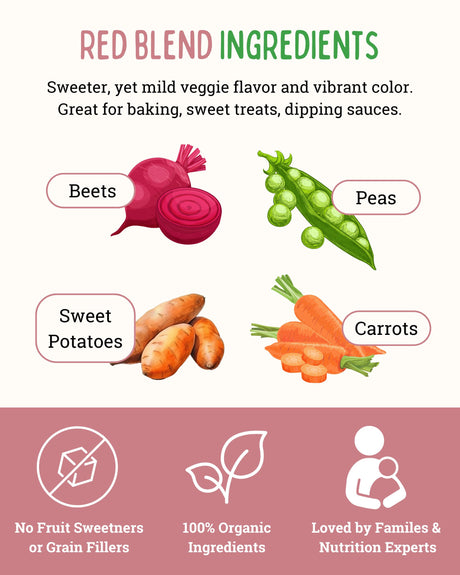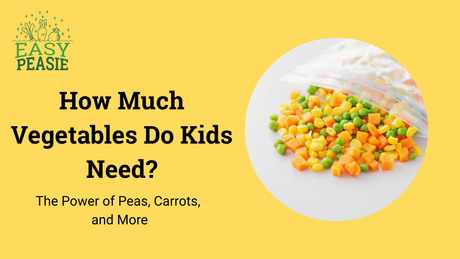Constipation is a common digestive issue characterized by infrequent bowel movements, difficulty during defecation, or the sensation of incomplete bowel evacuation. While it can affect anyone, its manifestation in children often differs from adults. Kids might not always be able to articulate their discomfort, leading them to exhibit behaviors like avoiding the toilet or clutching their stomach. Their diets might lack essential fibers found in fruits and vegetables. On the other hand, adults typically recognize the discomfort and can trace it back to dietary choices or lifestyle factors. The introduction of solutions like veggie powder supplements can be essential in adding the much-needed fiber to a child's diet, thus helping in alleviating constipation.
The Role of Diet in Constipation
Diet plays a pivotal role in determining the regularity of our digestive system. A diet lacking in fiber, which is predominantly found in fruits, vegetables, and whole grains, can lead to constipation. Fiber acts as a sponge, absorbing water and adding bulk to the stool, making it easier to pass. Especially in children, who might sometimes be picky eaters, missing out on vegetables and other fiber-rich foods can make their stools hard and difficult to pass. On the other hand, diets high in processed foods, dairy, and refined sugars can exacerbate the issue. Thus, incorporating dietary solutions like veggie powders, or ensuring a balanced intake of veggies for kids, can be a proactive approach to preventing and managing constipation. Moreover, staying hydrated and consuming adequate fluids alongside a fiber-rich diet further supports a healthy digestive tract.
Physical Activity: Does it Play a Part?
Indeed, physical activity is not just crucial for our cardiovascular health or muscle strength; it's also a key player in maintaining a healthy digestive system. Regular exercise stimulates the natural contractions of the intestines, aiding in the movement of stool through the digestive tract. This becomes even more vital for children who, with the rise of digital distractions, might find themselves leading sedentary lives. A lack of consistent movement can lead to a sluggish bowel, increasing the risk of constipation. Even simple activities like walking, cycling, or playing outdoors can make a significant difference. So, whether it's encouraging kids to play outside or opting for family hikes or sports, integrating regular physical activity can act as a natural remedy for preventing and alleviating constipation.

Effects of Dairy and Processed Foods
Dairy and processed foods often find themselves under the nutrition spotlight when it comes to digestive health. For some individuals, particularly children, consuming high amounts of dairy can lead to constipation. The reason? Dairy products, especially cheese and milk, can reduce the moisture content of stool, making it harder to pass. On the other side of the spectrum, processed foods, laden with added sugars, unhealthy fats, and low in fiber, can slow down the digestive process. The lack of essential fibers in these foods means they don't provide the necessary bulk to facilitate regular bowel movements. To maintain a healthy digestive system, it's crucial to monitor the intake of dairy and prioritize whole, unprocessed foods rich in fiber and other essential nutrients.
The Mind-Gut Connection
The mind-gut connection plays a pivotal role in digestive health, including constipation. This intricate relationship reveals how stress, anxiety, and other emotional states can directly impact gut function. When we're stressed, our body goes into a "fight or flight" mode, redirecting blood flow away from the gut and slowing down digestive processes. This physiological change can lead to constipation. Additionally, neurotransmitters produced in the brain, like serotonin, not only regulate mood but also influence gut motility. Imbalances in these neurotransmitters can further exacerbate digestive issues. Recognizing and managing emotional health is thus essential not just for mental well-being, but for maintaining a smoothly operating digestive system as well.
Medications and Constipation
Certain medications, unfortunately, come with the unintended consequence of constipation. Opioid pain relievers, commonly prescribed for severe pain management, are notorious for slowing down the digestive process. Additionally, some antacids that contain aluminum or calcium can be constipation culprits. Antidepressants, certain antipsychotics, and antihypertensive drugs can also affect bowel movements. Even over-the-counter remedies like iron supplements and specific allergy medications such as antihistamines can disrupt your regularity. If you've started a new medication and are experiencing constipation, it's essential to consult with your healthcare provider. They can offer alternatives or suggest ways to manage this side effect.
Signs and Symptoms of Constipation
Beyond the tell-tale sign of infrequent bowel movements, constipation comes with a variety of symptoms that can offer insight into one's digestive health. Many individuals might experience hard or lumpy stools, which can be a clear indication that the body isn't processing waste as effectively. Straining during bowel movements or feeling as though there's a blockage preventing stool passage are other concerning signs. Some people might also feel the unpleasant sensation of not being able to fully empty their stool from the rectum. Furthermore, abdominal discomfort, bloating, and pain are commonly associated with constipation. If you notice a combination of these symptoms persisting over time, it's crucial to seek medical advice, as they could be indicative of more severe underlying issues.
Natural Remedies and Dietary Adjustments
Natural remedies and dietary adjustments can play a pivotal role in alleviating constipation and promoting a healthy digestive system. Increasing fiber intake is a top recommendation; foods like whole grains, beans, fruits, and vegetables can make a significant difference in stool consistency and frequency. Hydration is equally crucial; drinking ample water supports bowel regularity and softens stools, making them easier to pass. Some individuals prefer warm beverages like herbal teas or lemon water in the morning to kickstart their digestive system. Probiotic-rich foods, such as yogurt, kefir, and fermented vegetables, help balance the gut's bacterial flora, facilitating smoother digestion. Additionally, flaxseeds and chia seeds, when soaked, can act as natural laxatives. As with any health-related changes, it's essential to introduce these remedies gradually and monitor how one's body responds, ensuring optimal digestive well-being.
When to Seek Professional Help
Seeking professional help for constipation is crucial when home remedies and dietary adjustments aren't yielding results. If constipation persists for more than two weeks or is accompanied by unexplained weight loss, severe abdominal pain, blood in the stool, or rectal bleeding, it's time to consult a healthcare professional. Moreover, if you find yourself frequently needing over-the-counter laxatives to have a bowel movement, it might indicate an underlying issue that requires medical attention. In children, if constipation is causing distress, is combined with other concerning symptoms, or if you notice a significant change in their bowel habits, consulting a pediatrician is essential. Persistent constipation can sometimes be a sign of a more severe underlying condition, such as a bowel obstruction or a neurological disorder. Therefore, it's essential to prioritize your or your child's health and seek expert guidance when in doubt.
Final Thoughts
Navigating the maze of constipation solutions can be daunting, but it's worth experimenting with various dietary approaches. For those with little ones, consider introducing products like veggie powders, specifically EasyPeasie Red Blend, into their diet. These natural solutions can be an innovative way to ensure they're getting essential nutrients that can aid in digestion. While tweaks in diet can make a significant difference, remember that every child is unique. For a tailored approach that addresses individual needs, diving deeper into informative articles or, better yet, consulting with a pediatrician is invaluable. After all, a personalized touch often paves the way for the most effective solutions.













